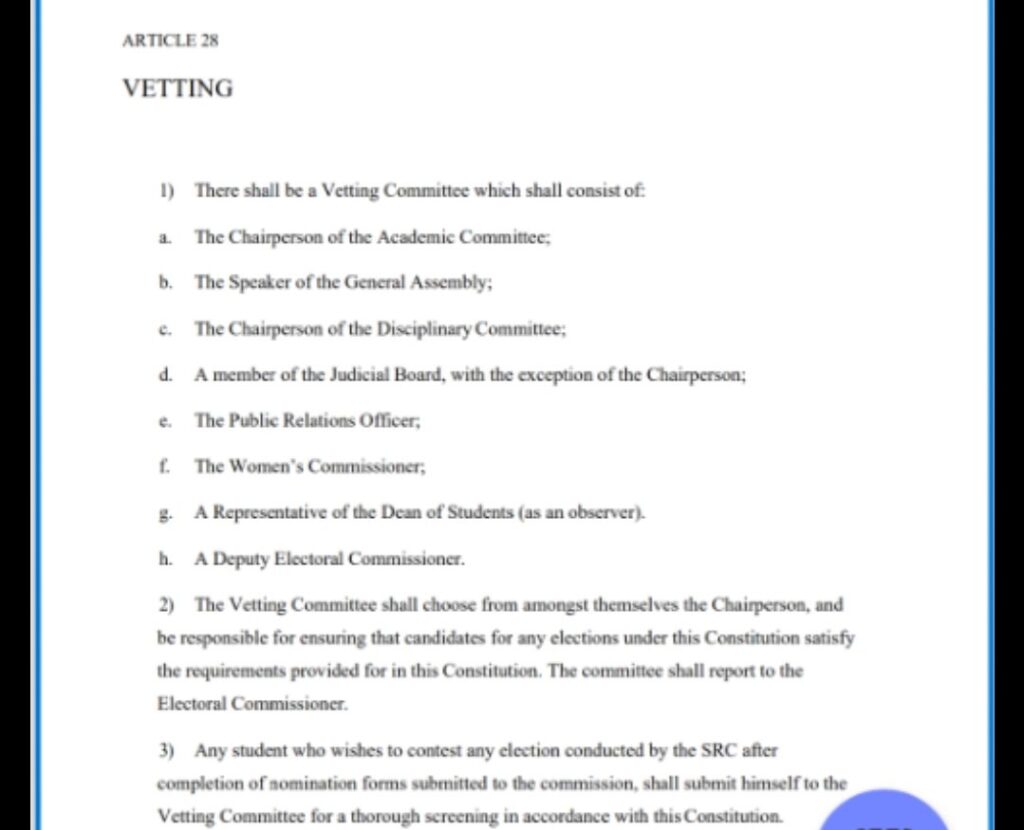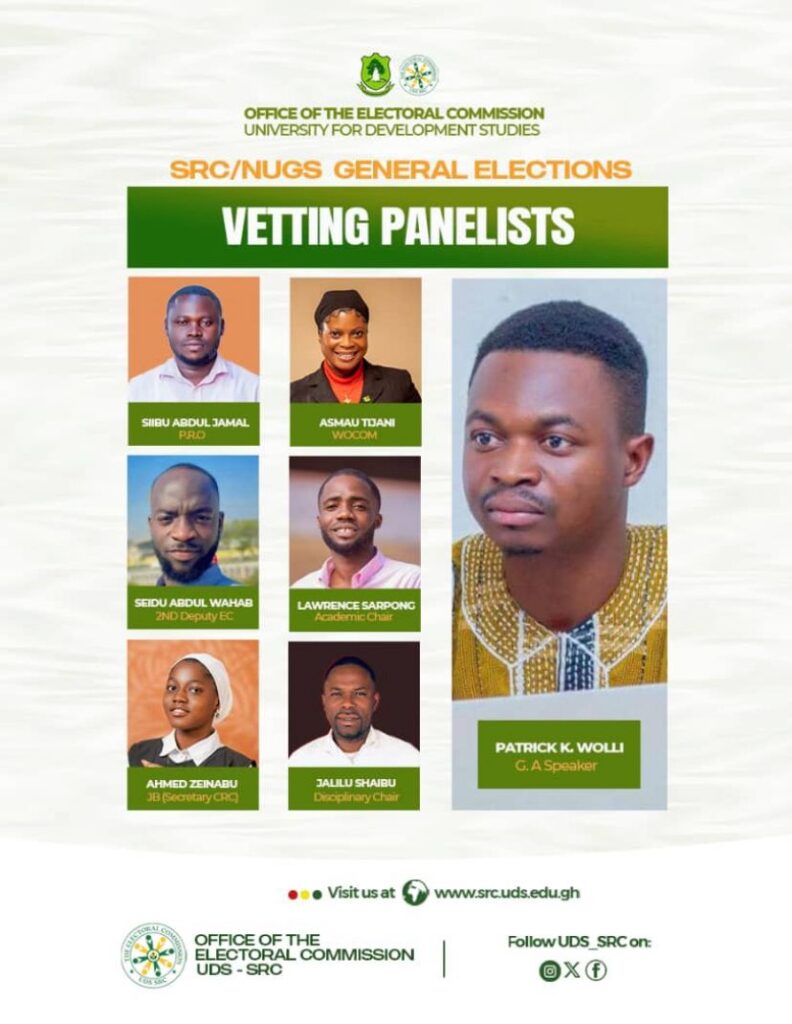Tamale, Ghana – University for Development Studies (UDS)
The recently concluded vetting session for the UDS-Tamale Campus (UDS-TLC) SRC/NUGS/WOCOM elections has sparked widespread student debate and concern over the credibility and effectiveness of the vetting process. While the vetting panel was constituted in accordance with Article 28 of the UDS SRC Constitution, many students have voiced dissatisfaction with how the vetting was conducted.

The panel, which featured notable figures such as Patrick K. Wolli (G.A Speaker), Asmau Tijani (WOCOM), and Siibu Abdul Jamal (P.R.O), came under scrutiny for what many described as a lack of depth and rigor in questioning. A particular point of contention was the performance of the Women’s Commissioner, who was heavily criticized for not posing critical or pragmatic questions to aspirants.

“Most of the questions sounded like they were generated by artificial intelligence,” a student remarked. “They didn’t seem tailored to assess whether candidates are genuinely capable of serving in leadership roles.”
This sentiment was echoed by a significant portion of the student body, with some suggesting that the current panelists themselves might not pass if subjected to a vetting process. They argue that the vetting process, as currently structured, lacks the substance and scrutiny necessary to ensure capable leadership.
Amidst the criticism, a growing number of students are calling for a redefinition of the vetting framework within the university. They argue that the existing approach often feels more like an interrogation or a platform for settling personal scores, rather than a constructive process for evaluating leadership potential.
Others advocate for a more meritocratic selection of vetting panelists in future elections. “Just because someone holds an office doesn’t mean they’re the best person to vet aspiring leaders,” one student opined. “We need individuals who are passionate and capable of asking the right questions, not just figureheads.”
As the SRC prepares for the next phase of its electoral process, these calls for reform could prompt serious reflection on how best to uphold the principles of transparency, fairness, and competence in student leadership.